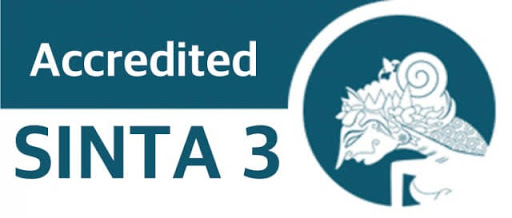Development of literacy-based learning for Pancasila and citizenship education in senior high school
DOI:
https://doi.org/10.12928/ijei.v2i1.3003Keywords:
learning model, literacy, Pancasila and citizenship educationAbstract
Pancasila is the five principles which becomes the Indonesian ideology. The literacy culture of students, especially in Pancasila and citizenship education learning, is still low. The results of a preliminary observation we did at several high schools in Bantul Regency, Yogyakarta, showed that the problem of Pancasila and citizenship education learning was the students' low literacy skills. Solutions are needed to overcome these problems. An alternative solution about literacy based on Pancasila and citizenship education learning model is needed. The citizenship education learning process based on literacy can improve the literacy skills of students. The purpose of this study is to produce a literacy-based Pancasila and citizenship education learning model in senior high school. This type of research is qualitative. The location of this research is senior high schools in Bantul, Yogyakarta. The results showed that the literacy based on Pancasila and citizenship education learning model in senior high schools were: first, school support about literacy culture. Literacy culture facilities include education and school policies and school facilities. Second, the development of literacy based on Pancasila and citizenship education learning include: (1) preliminary stages include: orientation, apperception, motivation, and giving ignorance. Literacy developed is cultural literacy. (2) The core stages include stimulation, problem statements, data collection, verification, and concluding. The literacy developed is cultural literacy, literacy, digital literacy, and scientific literacy. (3) The concluding stage includes summarizing conclusions, reinforcement, feedback, and closing greetings. Literacy activities developed are cultural literacy and reading-writing literacy.
References
Bomer, R., Land, C. L., Rubin, J. C., & Van Dike, L. M. (2019). Constructs of teaching writing in research about literacy teacher education. Journal of Literacy Research, 51(2), 196–213. doi: 10.1177/108629-6X19833783.
Bowo. A. N. A. (2015). Cerita Cinta Belajar Mengajar. Yogyakarta: Deepublish.
Bowo, A. N. A. (2016). Implementasi pembelajaran PKN berbasis inklusi di homeschooling. Academy of Education Jurnal, 7(2).
David L. Grossman, Wing On Lee, K. J. K. (2008). Citizenship Curriculum In Asia and The Pacific. Hong Kong: Comparative Education Research Centre Faculty of Education, The University of Hong Kong.
GLN (2017). Panduan Gerakan Literasi Nasional. Jakarta: Ministry of Education.
Grant, A. N. (1986). Defining literacy. Australian Review of Applied Linguistics, 9(2), 1–22. doi: 10.1075/aral.9.2.01gra.
Leksono, I. P. (2019). Bahan ajar PPKn berbasis karakter dan literasi untuk siswa Kelas IX SMP Al Hikmah Surabaya. Kajian Teknologi Pendidikan Jurnal, 4(2).
Lestari, R., Astuti, B., & Bhakti, C. P. (2020). A comprehensive teacher strategy for successful online learning process. International Journal on Education Insight, 1(1), 1–12. doi: 10.12928/ijei.v1i1.2064.
Mangeya, H. (2019). Graffiti as a site for cultural literacies in Zimbabwean urban high schools. International Journal of Cultural Studies, 22(3), 334–348. doi: 10.1177/1367877918788577.
Marmoah, S., & Hartono, S. (2019). Implementation of school-based management through a culture of literacy in elementary schools. Riset Pedagogik Journal, 3(2).
Merga, M. K., Roni, S. M., & Malpique, A. (2020). School leadership and whole-school support of struggling literacy learners in secondary schools. Educational Management Administration and Leadership, 20(10), 1–17. doi: 10.1177/1741143220905036.
Nuryadi, & Tolib. (2017). Pendidikan Pancasila dan Kewarganegaraan. Retrieved from: https://doi.org/10.1046/j.-1523-1739.2003.00432.x.
Nuryati, Budiutomo, T., & Bowo, A. N. A. (2017). Pengembangan model pembelajaran PPKn anti korupsi berbasis lingkungan melalui cooperative learning di SMA/SMK Swasta Kulon Progo Yogyakarta. Academy of Education Journal, 8(1).
Paristiyanti, N. (2016). Pendidikan Pancasila (I). Jakarta: Ristekdikti.
Pike, J. M. H. and M. A. (2006). Citizenship and Moral Education (1st ed.). Routledge Taylor & Francis Group.
Rintaningrum, R. (2009). Literacy: Its importance and changes in the concept and definition. Teflin Journal, 20.
Saadati, B. A., & Sadli, M. (2019). Analisis pengembangan budaya literasi dalam meningkatkan minat membaca siswa di sekolah dasar. TERAMPIL: Jurnal Pendidikan dan Pembelajaran Dasar, 6(2), 151–164. doi: 10.24042/terampil.v6i2.4829.
Widiatmaka, P. (2016). Kendala Pendidikan kewarganegaraan dalam membangun karakter peserta didik di dalam proses pembelajaran. Jurnal Civics, 13(2).
Winataputra, U. S. (2016). Posisi akademik Pendidikan Kewarganegaraan (PKn) dan muatan/mata pelajaran Pendidikan Pancasila dan Kewarganegaraan (PPKn) dalam konteks Sistem Pendidikan Nasional Jurnal Moral Kemasyarakatan, 1(1). doi: 10.21067/JMK.-V1I1.1184.
Downloads
Published
How to Cite
Issue
Section
License
Authors who publish with this journal agree to the following terms:
- Authors retain copyright with the work simultaneously licensed under a Creative Commons Attribution License that allows others to share the work with an acknowledgement of the work's authorship and initial publication in this journal.
- Authors are able to enter into separate, additional contractual arrangements for the non-exclusive distribution of the journal's published version of the work (e.g., post it to an institutional repository or publish it in a book), with an acknowledgement of its initial publication in this journal.
- Authors are permitted and encouraged to post their work online (e.g., in institutional repositories or on their website) prior to and during the submission process, as it can lead to productive exchanges, as well as earlier and greater citation of published work (See The Effect of Open Access).




